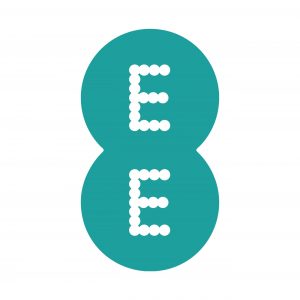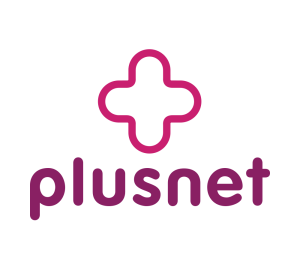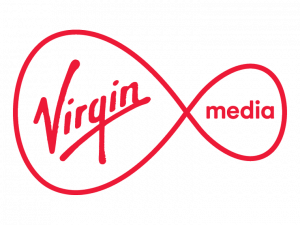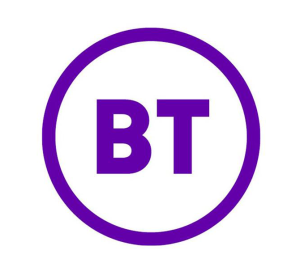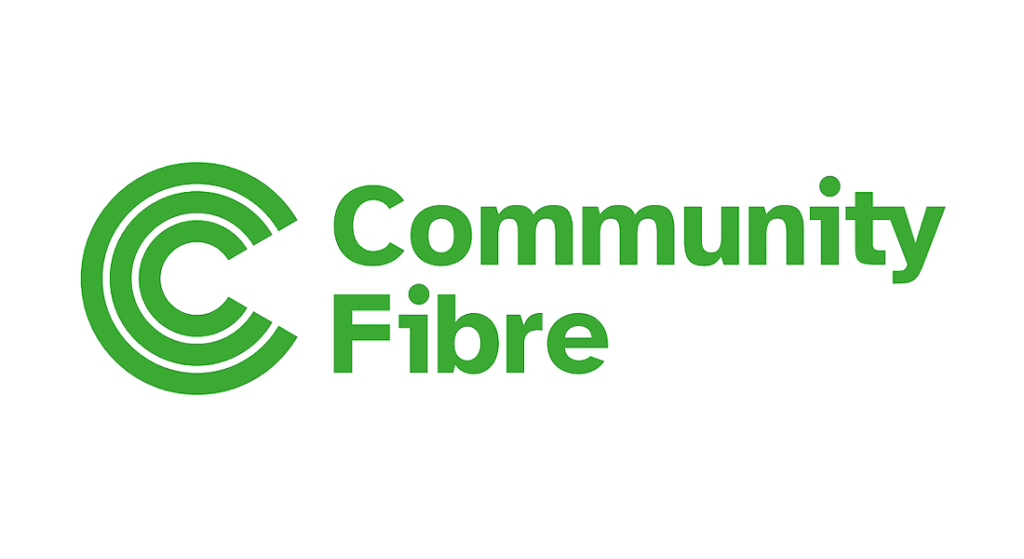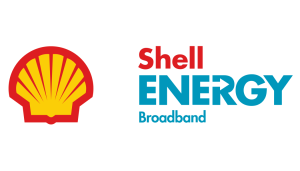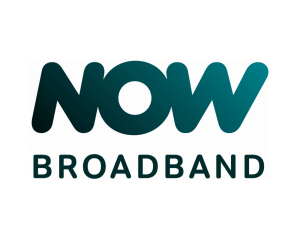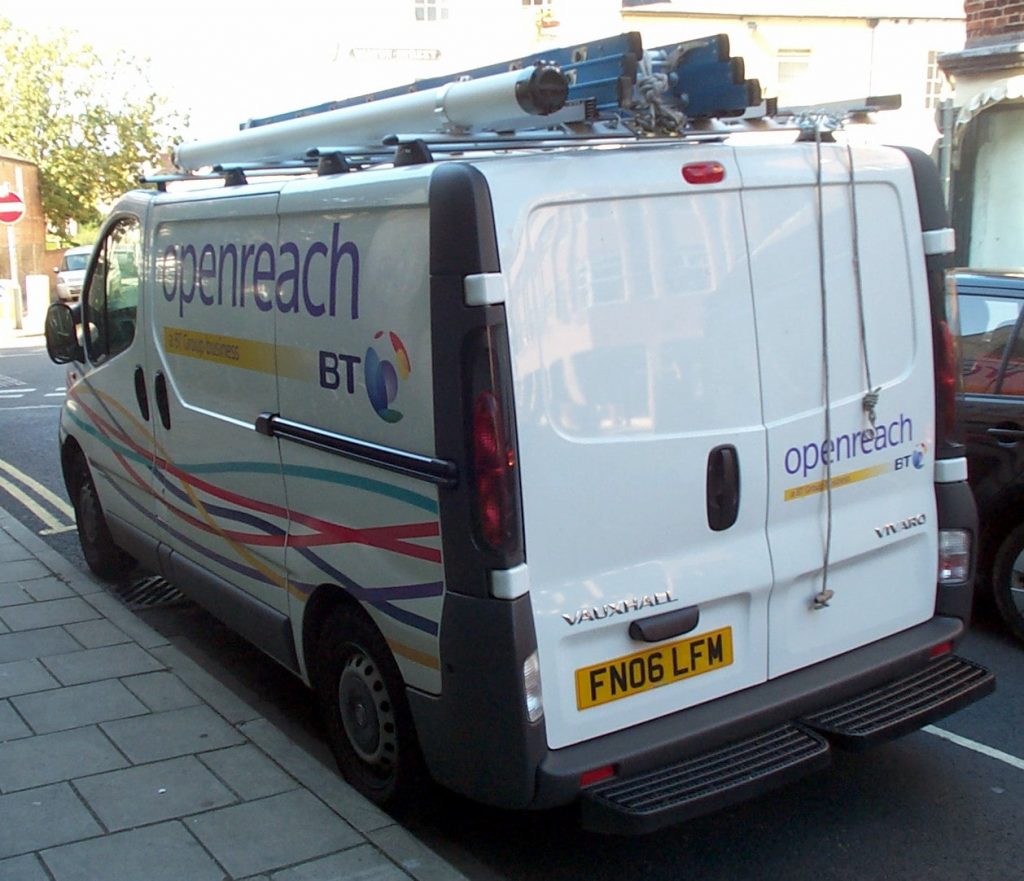Looking to get fibre broadband?
In this buyer’s guide, we’ve looked at the 7 best fibre broadband deals in the UK right now.
We’ve also explained what you need to know when you compare fibre broadband deals, to help you find the right package for your specific needs.
Quick comparison table
Best fibre broadband deals

Let’s begin our reviews.
Below, we’ve looked at fibre optic broadband deals from seven different providers, including superfast and ultrafast fibre plans.
1. EE Busiest Home Bundle
EE offers the fastest widely available broadband in the UK right now.
In certain Openreach full fibre areas, you can get download speeds of up to 1.6 Gbps (1,600 Mbps) with EE Broadband. This isn’t available everywhere yet – in other full fibre locations, you can get up to 900 Mbps.
EE Broadband is not cheap, especially their 1.6 Gbps Busiest Home Bundle. However, they do include a lot of value to make up for this.
They include a Smart Hub Plus router, which comes with WiFi 6, ensuring you get good signal and speeds throughout the house. Plus, there are no upfront fees on most of their deals.
Also, if you’re an EE Mobile customer, and you join EE Broadband, your mobile plan will be upgraded to unlimited data, free of charge.
Pros
- Offers download speeds of up to 1.6 Gbps.
- Can get unlimited data for free if you join as an EE Mobile customer.
- Comes with a WiFi 6 compatible router.
- No upfront costs on most deals.
Cons
- High monthly costs.
2. Plusnet Full Fibre
If you’re looking for full fibre broadband for the cheapest possible price, Plusnet is worth checking out.
They’re owned by BT, but offer much lower monthly and upfront costs than their parent company. And despite this, you can still get ultrafast download speeds, of up to 900 Mbps.
We tested Plusnet Full Fibre 900 and found it to offer very consistent download and upload speeds. Plusnet’s customer support was also very helpful whenever we got in touch with them.
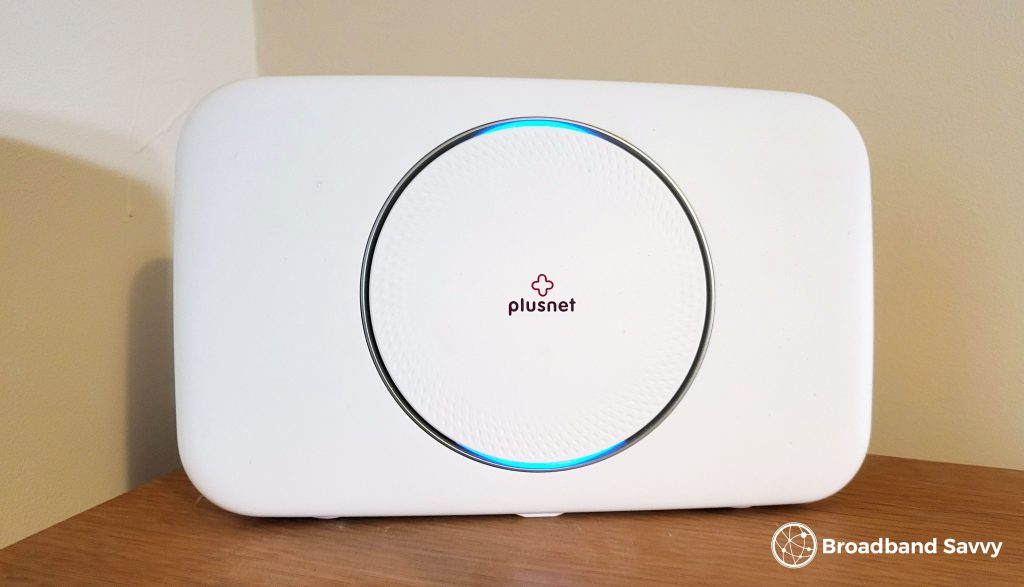
Since Plusnet is owned by BT, they use the same UK-based support team, which apart from being helpful, also tends to pick up the phone very quickly in our experience.
The downside to Plusnet is they don’t include a heap of extras, like EE or most other providers do. However, this isn’t a big loss, unless you want a broadband and TV deal, or bonuses like Xbox Game Pass.
Pros
- Low monthly costs.
- No upfront fees most of the time.
- Helpful customer support.
- Offers consistent speeds and Wi-Fi signal in our experience.
Cons
- Quite basic – limited to 900 Mbps.
3. Virgin Media Gig1 Fibre
Virgin Media has its own broadband network, separate from all other providers.
Using Virgin Media, you can get download speeds of up to 1,130 Mbps with their Gig1 plan on an 18 month contract, which is faster than the 900 Mbps top speed that Openreach providers like Plusnet and BT offer in most areas.
Virgin Media’s upload speeds aren’t as good as on most other networks. However, this isn’t a big issue for most families, since most of us tend to download a lot more data than we upload.
The biggest issue with Virgin Media at the moment is their customer service.
When we tested their M200 package, while our broadband was fast, and our Wi-Fi was good, we weren’t getting the speeds we were paying for, some of the time.
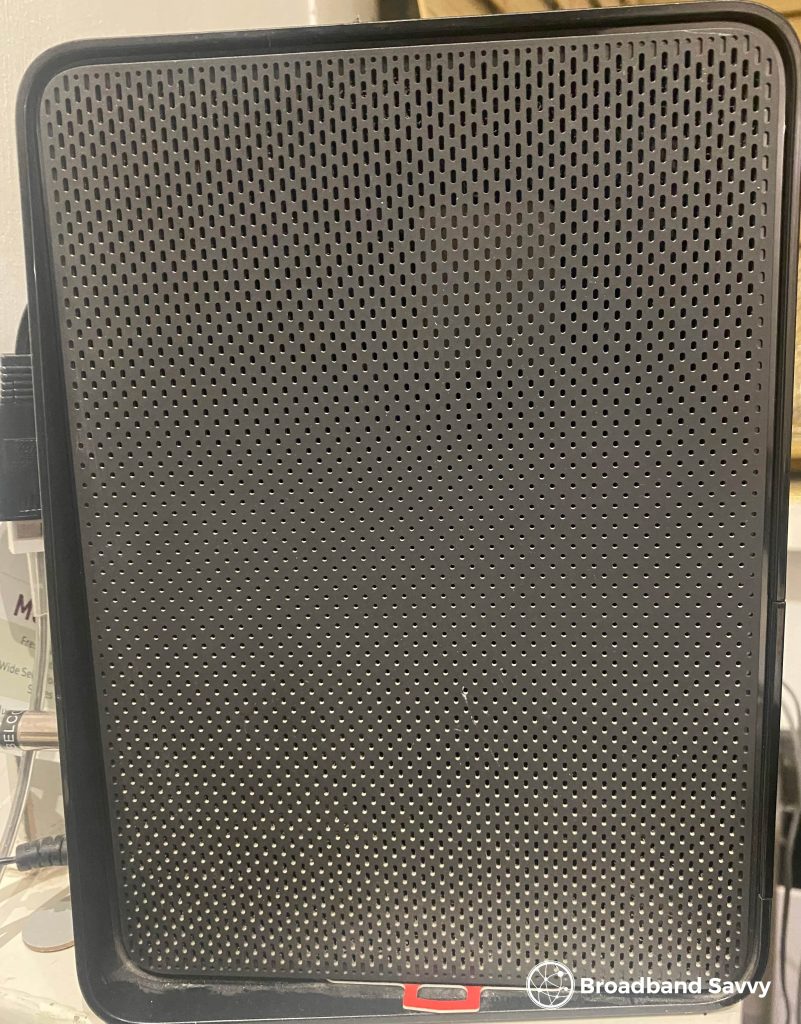
And in the media recently, there have been a number of reports of customers having difficulty getting in touch with their customer support team.
The best thing about Virgin Media is they offer faster broadband speeds than most other providers in most areas. Their prices also tend to be quite reasonable, considering the average download speeds on offer.
However, their customer service performance could be a lot better.
Pros
- Excellent download speeds.
- Reasonable prices.
- Virgin Media is the fastest broadband provider in most parts of the UK.
Cons
- Customer service could be better.
4. BT Full Fibre
If you’re considering EE but find them a bit too expensive, or aren’t a fan of their add-ons, BT is also worth considering.
BT’s broadband deals are very similar to EE’s, because BT owns EE. The difference is, BT doesn’t offer quite as fast download speeds – there is no 1.6 Gbps package at the moment.
Also, BT’s monthly costs tend to be a bit cheaper, although there is sometimes a setup fee that you have to pay.
BT’s customer service is great – we’ve tested their Fibre 1 and Fibre 2 plans, and found their support team to be very helpful. We’ve never had any issues with our speeds slowing down, and we’ve never experienced any Wi-Fi dropouts.
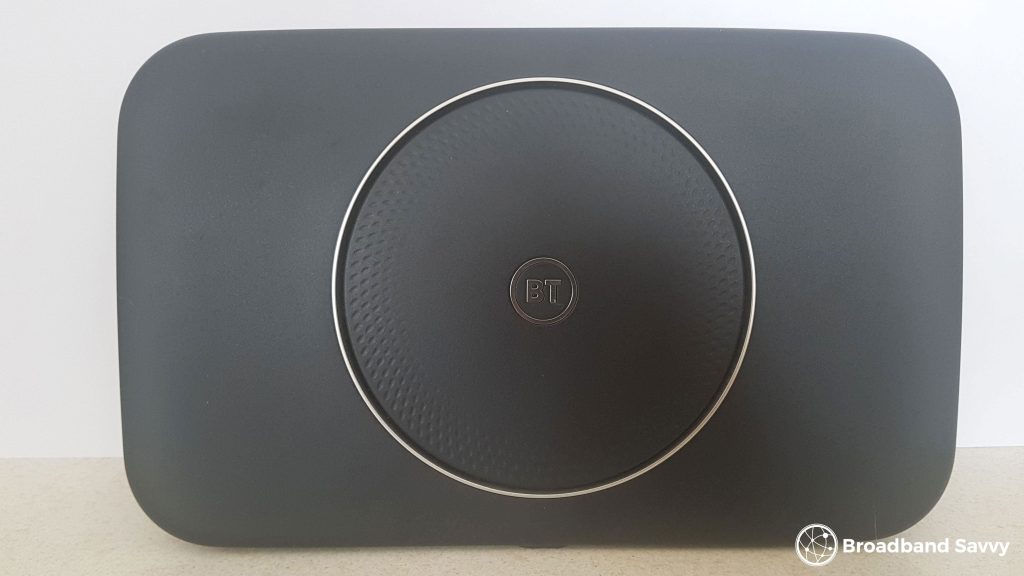
You also get a BT reward card when you sign up as a new customer, which is a nice touch. It works a bit like a prepaid debit card, and can be used at most shops or online stores, helping to offset the setup cost a little bit.
Pros
- Good customer support.
- Reasonable monthly costs.
- Comes with a reward card.
- Offers consistent speeds and Wi-Fi, in our experience.
Cons
- Limited to 900 Mbps.
5. Community Fibre
For those living in London, and surrounding areas, Community Fibre is definitely worth looking at.
This provider has built their own broadband network in the city, which offers download speeds of up to 3,000 Mbps or 3 Gbps – the fastest in the UK.
They also offer a more reasonable 1 Gbps broadband plan, which is plenty of speed for most households.
When we tried using Community Fibre, we found their support to be quite responsive. Their prices are also very reasonable, given the speeds on offer, although there is a small installation fee, and you have the choice of a 12 month or a 24 month contract.
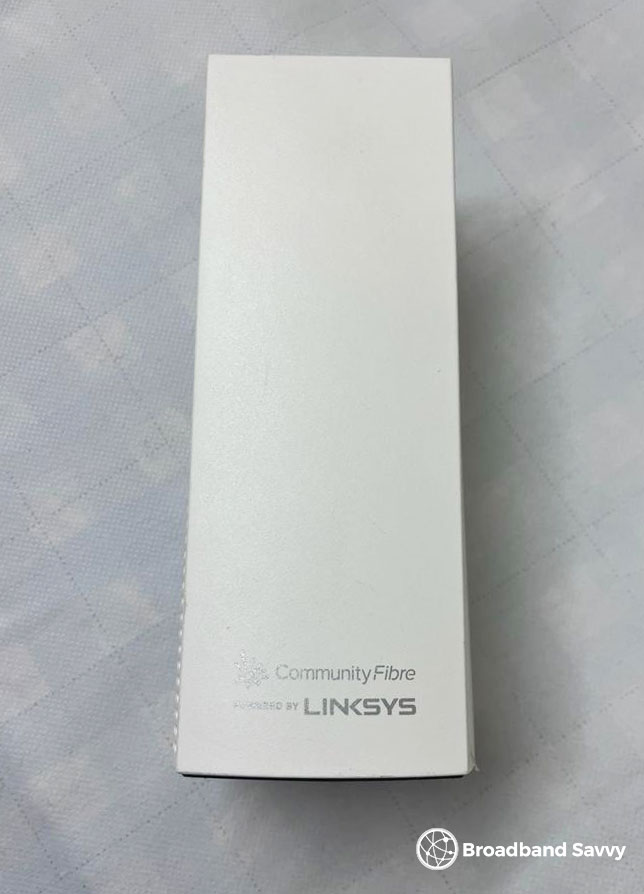
The only real downside to Community Fibre Broadband is their limited availability – you can only join their network if you live in Greater London at the moment.
Pros
- Offers some of the fastest fibre broadband in the UK.
- Reasonable monthly costs.
- Good customer support from our testing.
- Can choose your contract length.
Cons
- Only available in London and surrounds.
6. Shell Energy Broadband Ultrafast Fibre Plus
Shell Energy Broadband is another good choice if you want cheap, fast full fibre broadband – and it’s available in most of the country.
Their monthly costs are extremely competitive, and they include a WiFi 6 router on their fastest plans, giving you the best possible signal and speeds.
They do charge an upfront cost, and it’s hidden a few pages into the checkout process. This makes for a bit of a surprise when you sign up, but it’s not a huge fee.
The contract is 18 months, which isn’t too long, although you don’t get the choice of a 12 month agreement.
There is little in the way of bonuses or extras with Shell Energy Broadband. They used to offer discounts on Shell gas/electricity, and cheaper Shell petrol, but these offers aren’t available anymore.
The biggest downside to Shell Broadband is their customer service. According to Ofcom research, their customer satisfaction ratings are not as high as many other major providers, like Plusnet and BT.
Pros
- Low upfront fee.
- Very competitive monthly costs.
- Comes with a WiFi 6 router if you get full fibre.
Cons
- Customer service isn’t the best.
7. NOW Broadband Full Fibre 75
NOW Broadband is another simple, great value fibre supplier, similar to Plusnet.
This broadband provider often offers some of the cheapest fibre packages of any company on the market.
Their monthly costs are very low, as it the setup fee. Plus, you can normally reclaim the upfront cost through NOW’s cashback offer.
The downside to NOW is, they don’t offer ultrafast download speeds. Instead, they will refer you on to Sky Broadband if you need a plan with a download speed higher than 100 Mbps.
Also, you have to commit for 24 months to join NOW Broadband, meaning they’re not the most flexible provider on the market.
Pros
- Low monthly costs.
- Only a small upfront fee.
- Very simple & straightforward plans.
Cons
- Can’t get ultrafast download speeds.
- 24 month contract.
What you need to know

In this part of the article, we’ve explained what you need to know when shopping for a fibre broadband deal, so you can find the right provider for your specific needs.
UK fibre broadband networks explained
In recent years, there has been a lot of progress made in expanding fibre broadband infrastructure throughout the UK.
There are now a few different fibre broadband networks that service different parts of the country. In some areas, especially major cities, you have the choice of using two or more different fibre broadband networks.
- Openreach is the main British broadband supplier, and the most widely-available full-fibre network. When you buy broadband from BT, Plusnet, Sky, TalkTalk, or most other companies, access is provided through the Openreach network. In most areas, Openreach offers speeds of up to 900 Mbps, but you can get up to 1.6 Gbps with EE in certain parts of the country.
- Virgin Media has their own separate broadband network to Openreach, which uses a special type of cable internet technology. Using Virgin Media, you can get average download speeds of up to 1,130 Mbps, although their upload speeds are slower than what you get with Openreach providers, when you compare plans with a similar download speed.
- There are now also a range of altnets available in some parts of the country, especially larger towns and cities. Altnets are small, independent broadband networks, which often offer ultrafast fibre speeds for a low monthly cost. For example, Community Fibre offers download speeds of up to 3 Gbps in many parts of Greater London.
Although Virgin Media and other alternative networks can be faster and cheaper than using Openreach, switching to one of these other companies can be a bit difficult.
You’ll need to contact your old provider to cancel the connection, and an engineer visit will almost always be required.
When you change between different Openreach broadband providers, the process is much more simple, since you’re only changing suppliers – not the broadband network you’re using.
Fibre broadband jargon explained
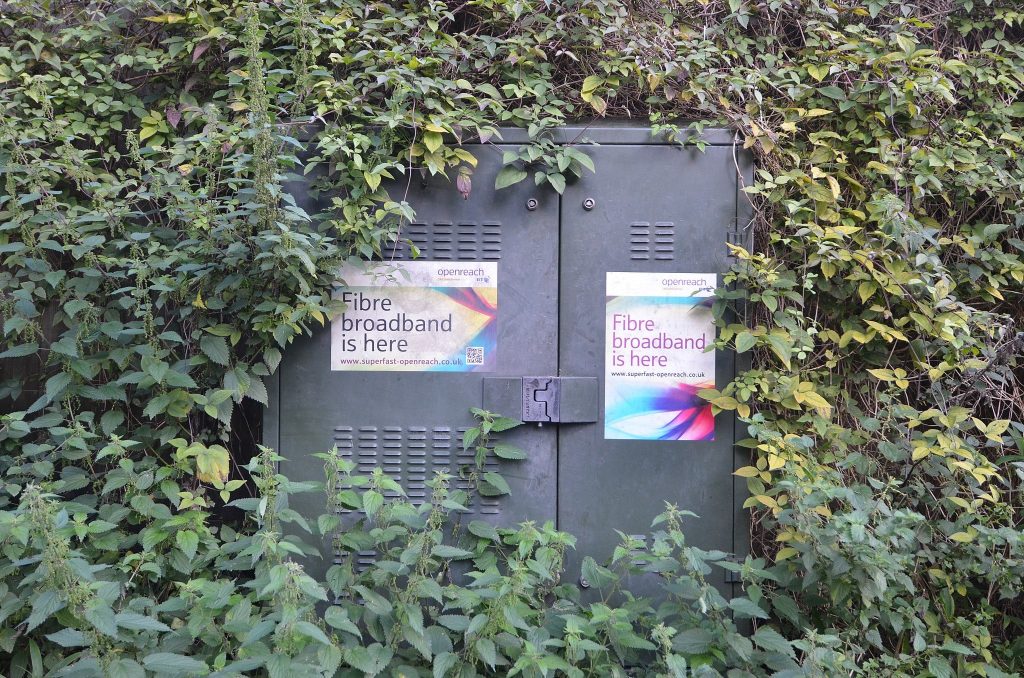
Different broadband deals are advertised using a range of different language to describe their download and upload speeds.
Sometimes, this jargon can be quite confusing.
- Superfast refers to a broadband plan with a download speed of at least 30 Mbps, up to 300 Mbps.
- Ultrafast refers to a broadband plan with a download speed of more than 300 Mbps.
- Full fibre refers to the use of fibre to the premises (FTTP) broadband, meaning that a fibre optic cable connection is used from the broadband box in your street, all the way to your house, for the fastest possible speeds. This is the opposite of fibre to the cabinet (FTTC) broadband, where the fibre optic cable only reaches the green broadband cabinet in your street, and copper cabling is used from the cabinet to your house, resulting in slower average speeds.
You may also see some broadband providers advertise their broadband deals as symmetrical. This is a type of full fibre broadband technology that provides the same download and upload speeds on a given package. Normally, the upload speed offered is a lot slower than the download speed on most broadband deals.
How much does fibre broadband cost?
The exact amount you’ll pay for fibre broadband depends on the download speed you choose, and the network you’re using.
- For a superfast fibre broadband deal, you can expect to pay about £25-£35 per month, depending on the speed of the tariff you’ve chosen.
- For an ultrafast fibre broadband deal, you can expect to pay about £45-£60 per month with an Openreach provider, or Virgin Media. Some altnets, such as Community Fibre, currently offer cheaper prices, in the range of £30-£40 for a 1,000 Mbps connection, because they are trying to attract market share right now.
In addition to these monthly costs, you can also expect to pay a £20-£30 upfront fee with some providers, to get your connection live. This is especially the case if you sign a short-term contract, or if an engineer needs to visit your address to install equipment before you can get online.
What broadband speed do I need?
While a 1 Gbps ultrafast fibre broadband connection is great to have, as we just discussed, buying such a fast broadband plan will be very expensive.
If you want to save a bit of money, you might be wondering what speed it’s actually worth paying for, given how your household uses the internet.
You need faster broadband if:
- More people live at home, and spend more time online.
- People often do very data-intensive activities when online, such as streaming video in 4K.
- You work from home, and need fast internet to maximise your productivity.
For most couples, a 100 Mbps broadband connection should offer plenty of bandwidth, while you might want a 200 Mbps or faster connection as a family of four, if your kids are often online.
To get a more precise idea of what download and upload speed you need, you can use our what internet speed do I need calculator.
How to save money on fibre broadband
Apart from only choosing a broadband deal with the download speed you really need, there are some other ways you can save money when buying a fibre broadband deal:
- Avoid bundling any other services with your broadband plan that you don’t need. Cable TV packages for example can get very expensive, very quickly. Normally, it’s best to buy a separate streaming service instead if you want to save money.
- Search specifically for a cheap, basic provider, like Plusnet. Some broadband providers charge more for the same level of speed, simply because of freebies and other extras included, like reward cards.
- Look to use an altnet, especially if you want a full fibre broadband deal with speeds of more than 500 Mbps. Often, these smaller providers will offer lower monthly costs than Virgin Media or BT/Sky, although these alternative networks aren’t available in all areas.
- Commit to a 24 month contract, if you can. Your upfront and monthly costs will normally be a bit lower if you do this instead of signing a 12 or 18 month agreement.
Do I need to have an engineer come to install fibre?
If you are upgrading to FTTP broadband for the first time, an engineer will likely need to come and install your new connection, before you can get online.
It’s also like a technician will need to visit if you are joining Virgin Media or another independent broadband network.
However, if you are switching between Openreach broadband providers, and you’re not upgrading to full fibre broadband, an engineer visit might not be necessary.
What to do if you can’t get fast fibre broadband
About 53% of UK premises can now access full fibre broadband, according to Ofcom.
You can use the Openreach rollout map to get a rough idea of when fibre might come to your address through providers like BT and Plusnet. Unfortunately, most other networks don’t offer rollout maps at the moment.
If you’re part of the remaining 47% of households that can’t get ultrafast fibre broadband, and full fibre isn’t coming to your address soon, it might be worth checking out 4G or 5G internet solutions.
Using mobile broadband, you can get download speeds of up to 700 Mbps, if you have good 5G coverage at your address, although your latency will be higher than if you were using fibre.
It’s also possible that you might be able to get fibre broadband, without knowing it.
It’s a good idea to look for independent networks that may have deployed fibre broadband in your area recently. Many households in the UK are now covered by these smaller providers, although not many people are aware of this.
If you’re not sure what broadband speed you can get at your address, use our postcode checker.
Conclusion
You’ve reached the end of our guide to the best fibre broadband providers in the UK in 2024.
Remember, even if you don’t mind paying more for fast broadband, having a 1,000 Mbps or faster connection might not be worth the extra money, especially if you don’t work from home.
For most families, a 200-300 Mbps connection offers plenty of bandwidth, even if it’s common for multiple people to get online at the same time.
If you have any questions about choosing a broadband provider, leave a comment, and we’ll help out.
About the author

Tyler is the co-founder of Broadband Savvy. He has been helping people improve their broadband connectivity since 2018 by writing about fibre broadband and mobile broadband providers, as well as creating tutorials to help people improve their broadband speeds and Wi-Fi signal.
Tyler is responsible for the majority of buyer’s guides and broadband reviews published on Broadband Savvy. He has a wealth of experience testing and reviewing different broadband tariffs, including fibre internet plans, as well as 4G and 5G broadband deals. He is responsible for testing and evaluating Wi-Fi routers, performing speed and latency tests, and comparing the value for money of different broadband providers on the market in the UK.
Before co-founding Broadband Savvy, Tyler had a long history of tinkering with computers. He built his first PC at the age of 12, and since then, he’s become obsessed with all things networking and internet-related. He’s a massive gamer, loves Rocket League, and also plays Sunday League football.


